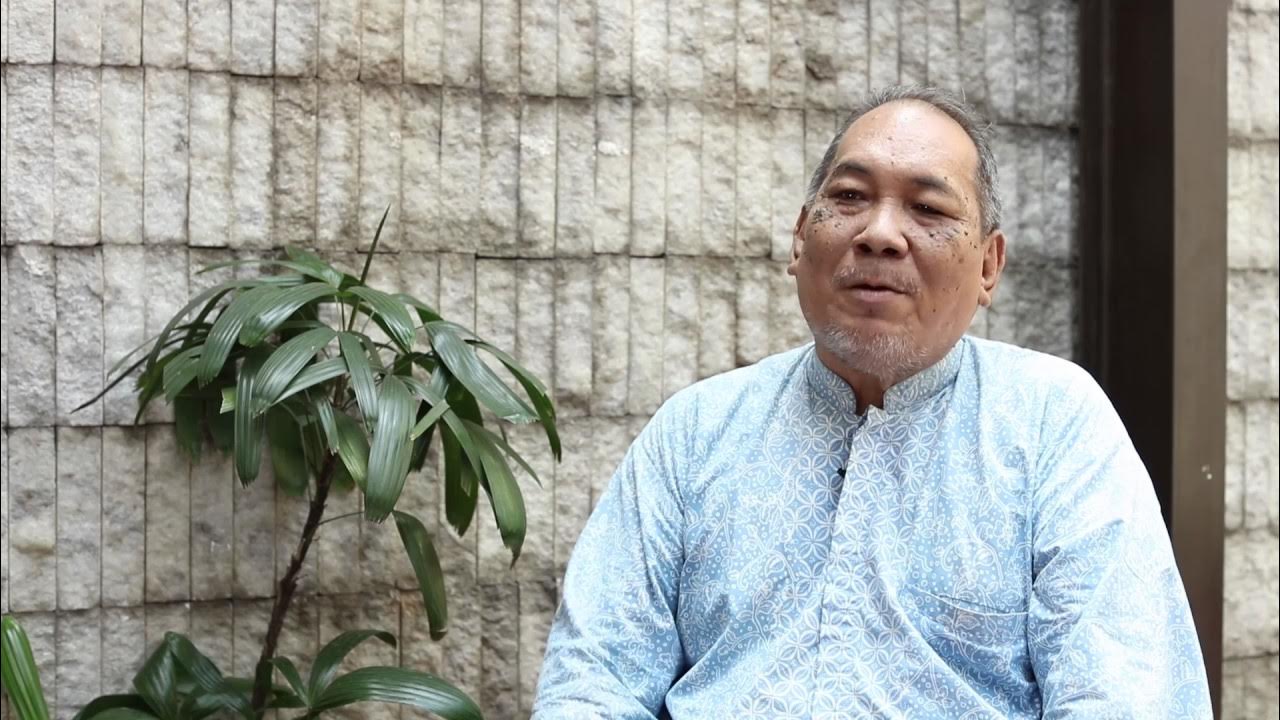Lahirnya Pancasila BPUPKI
Summary
TLDRThe transcript outlines the formation of Indonesia’s foundational state philosophy, Pancasila, during the Japanese occupation in World War II. In 1944, the Japanese government formed the BPU PKI, which included Indonesian leaders tasked with creating a framework for independence. Through discussions, various figures proposed their ideas for the state’s basis, but it was Soekarno's speech on June 1, 1945, that solidified Pancasila as the guiding philosophy, emphasizing nationalism, humanity, democracy, social welfare, and belief in God. After Indonesia’s independence, adjustments were made to the constitution, but Pancasila remained the cornerstone of the nation's identity and governance.
Takeaways
- 😀 The Japanese occupation army tried to gain the support of the Indonesian people during World War II by forming a body to investigate Indonesian independence efforts.
- 😀 The BPU PKI was formed on March 1, 1945, with 74 members (67 Indonesians and 7 Japanese) to help lay the foundation for an independent Indonesia.
- 😀 Dr. Rajiman Widyudi Ingeran was appointed as the chairman of BPU PKI, and the first session took place in May 1945, where members discussed the philosophical basis of the state.
- 😀 Muhammad Yamin proposed five key principles for the state: nationality, humanity, divinity, democracy, and people's welfare.
- 😀 Professor Supomo proposed values such as unity, balance, deliberation, and justice as the foundation for the Indonesian state.
- 😀 Bung Karno, on June 1, 1945, introduced the five principles of Pancasila: Indonesian nationality, internationalism, consensus democracy, social welfare, and belief in God.
- 😀 Pancasila, as proposed by Bung Karno, could be compressed into three principles: socio-nationalism, socio-democracy, and belief in God, and further simplified into one principle: mutual cooperation.
- 😀 A small committee, including Bung Karno and Muhammad Hatta, was tasked with drafting the constitution and creating the Jakarta Charter on June 22, 1945.
- 😀 The Jakarta Charter outlined the state's foundation, which included the obligation to implement Islamic law for its adherents and emphasized democracy, justice, and unity.
- 😀 After Indonesia's independence on August 17, 1945, the PPKI ratified the constitution, making necessary changes, including removing Islamic law clauses and confirming Pancasila as the state ideology, integrated into the 1945 Constitution.
Q & A
What was the primary goal of the BPU PKI formed by the Japanese occupation army?
-The primary goal of the BPU PKI was to attract the support of the Indonesian people by promising independence for Indonesia, as stated by the Japanese Prime Minister, Kuniaki Koiso, on September 7, 1944.
Who was the chairman of the BPU PKI, and when did the organization hold its first session?
-The chairman of the BPU PKI was Dr. Rajiman Widyudi Ingeran. The organization held its first session from May 29 to June 1945.
What were the main points proposed by Muhammad Yamin during the BPU PKI session on May 29, 1945?
-Muhammad Yamin proposed the following five points as the basis for the state: 1. Nationality, 2. Humanity, 3. Divinity, 4. Democracy, and 5. People's welfare.
What values did Professor Supomo suggest as the basis for the state on May 31, 1945?
-Professor Supomo suggested the values of unity of two families (physical and spiritual balance), deliberation, and people's justice as the basis for the state.
What were the five principles proposed by Bung Karno on June 1, 1945, for the Indonesian state?
-Bung Karno proposed five principles: 1. Indonesian nationality, 2. Internationalism or humanity, 3. Consensus and democracy, 4. Social welfare, and 5. Belief in the one and only God.
What was the name given to the five principles of the state introduced by Bung Karno?
-The five principles introduced by Bung Karno were called 'Pancasila.'
What did the small committee formed by the BPU PKI do regarding the constitution?
-The small committee, chaired by Ir. Soekarno, was tasked with formulating and drafting the constitution based on the principles laid out by Bung Karno.
What was the Jakarta Charter, and what did it contain?
-The Jakarta Charter, formulated on June 22, 1945, contained the basic formulation of the state, including principles such as 'One God with the obligation to implement Islamic law for its adherents' and 'Democracy led by deliberation.'
Why did Muhammad Hatta receive a delegation from East Indonesia on August 17, 1945?
-Muhammad Hatta received the delegation from East Indonesia because they felt that the first principle of the Jakarta Charter, which mandated the implementation of Islamic law, did not represent them. They threatened to break away from the newly declared Indonesian state.
What key changes were made to the 1945 Constitution after the PPKI ratified it on August 18, 1945?
-Key changes included replacing the phrase 'the obligation to implement Islamic law for its adherents' with 'Belief in the One and Only God,' removing the requirement for the president to be Muslim, and replacing certain clauses regarding just and civilized humanity and Indonesian unity.
Outlines

Esta sección está disponible solo para usuarios con suscripción. Por favor, mejora tu plan para acceder a esta parte.
Mejorar ahoraMindmap

Esta sección está disponible solo para usuarios con suscripción. Por favor, mejora tu plan para acceder a esta parte.
Mejorar ahoraKeywords

Esta sección está disponible solo para usuarios con suscripción. Por favor, mejora tu plan para acceder a esta parte.
Mejorar ahoraHighlights

Esta sección está disponible solo para usuarios con suscripción. Por favor, mejora tu plan para acceder a esta parte.
Mejorar ahoraTranscripts

Esta sección está disponible solo para usuarios con suscripción. Por favor, mejora tu plan para acceder a esta parte.
Mejorar ahora5.0 / 5 (0 votes)






